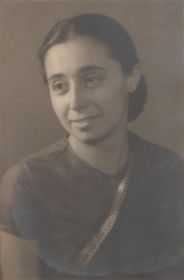Amarjot Kaur
It was in 2002 that Kanwalpreet met Oshima Zaranghez Samandari Raikhy, for the first time, out of sheer coincidence. “Oshima’s granddaughter and my son were in the same school and it was only when I interacted with Oshima’s daughter that I was introduced to a woman whose personality reflected progressive ideas on feminism that have been nurtured since 1930,” she begins.
Oshima is now the subject of her recently released biography titled ‘Looking Back with a Twinkle’. For Kanwalpreet, Oshima’s life struck relevance to the subject she teaches at DAV College, Sector 10, — political science — and it resonated with battles and circumstances that life threw at her too. “I learnt so much from her life. It’s motivating,” Kanwalpreet says.
While filling us with more details about the lady who she fondly refers to as Nanuma, she says, “I talk about the pre-partition days when she was living in Lahore. Her father Pritam Singh was an influential man who taught economics and political science. Oshima is a Persian adopted by a Sikh couple who converted to Bahai. Coincidently, her biological parents were Muslims who converted to Bahai too. Now, Bahais don’t encourage the idea of politics and here was this woman, a communist, who wanted to partake of the Swadeshi Movement.”
Kanwalpreet shares how Oshima battled her father’s conservative ideas against politics. She says when Oshima’s father learnt about her political leanings, he stopped giving her money and would often use his influence to get her fired from any job she took up. “She worked at grocery stores, trained as nurse and worked in hospitals, but in vain. On one particular occasion, her father wrote to her employer claiming that his daughter Oshima was a Russian spy and got her fired from the job. But that didn’t stop her from participating in the Swadeshi Movement. She would stir up some revolutionary ideas among the womenfolk and invite them to join the protest against the British,” she says.
Of what propelled her to write Oshima’s biography was her grit to swim against the tide along with a big bag of progressive ideas that most women of that era were not so comfortable with. “She’s 95 now and doesn’t complain; that’s why the title: ‘Looking Back with a Twinkle’. What I loved about her character was that when most women her age were content with being homemakers, she would go out to protest even during the 80s. She was in Chandigarh then. She’d go rock climbing too, by the way,” she shares after narrating tales about how Oshima, educated in Lahore and Kanpur, had to move to Kartarpur post-partition, then to Jalandhar after her kids were born, and finally settle in Chandigarh.
“She tells me about how she would go to the border areas in the 80s with the banner of Punjab Istri Sabha and shout slogans like: “We won’t let 1947 happen to Punjab again”. “We won’t let Hindus and Sikhs fight”. On one particular march, she was accompanied by activist Aruna Asaf Ali and is the founder member of Aruna Asaf Ali Trust in Sector 44. It works towards empowering women through vocational courses and provides free medical checkups too,” she recalls.
“It wouldn’t have been possible had it not been for her husband Brij Raikhy, who fell in love with her. She worked at his shop and he was a wealthy gold dealer. However, she refused his hand in marriage several times and agreed only when he told her to consider the marriage as a contract. For that era and for this, he was a progressive man too,” laughs Kanwalpreet.
Her book has been published by Educreation and is available on amazon.in for Rs 251. However, if you are the generous sorts, the book is available online too.
About her
Oshima’s father Pritam Singh was an influential man, who taught economics and political science. When he learnt about her political leanings, he stopped giving her money. He would often use his influence to get her fired from any job she took up. But that didn’t stop her from participating in the Swadeshi Movement. She would stir up some revolutionary ideas and invite women to join the protest against the British.
Unlock Exclusive Insights with The Tribune Premium
Take your experience further with Premium access.
Thought-provoking Opinions, Expert Analysis, In-depth Insights and other Member Only Benefits
Already a Member? Sign In Now










